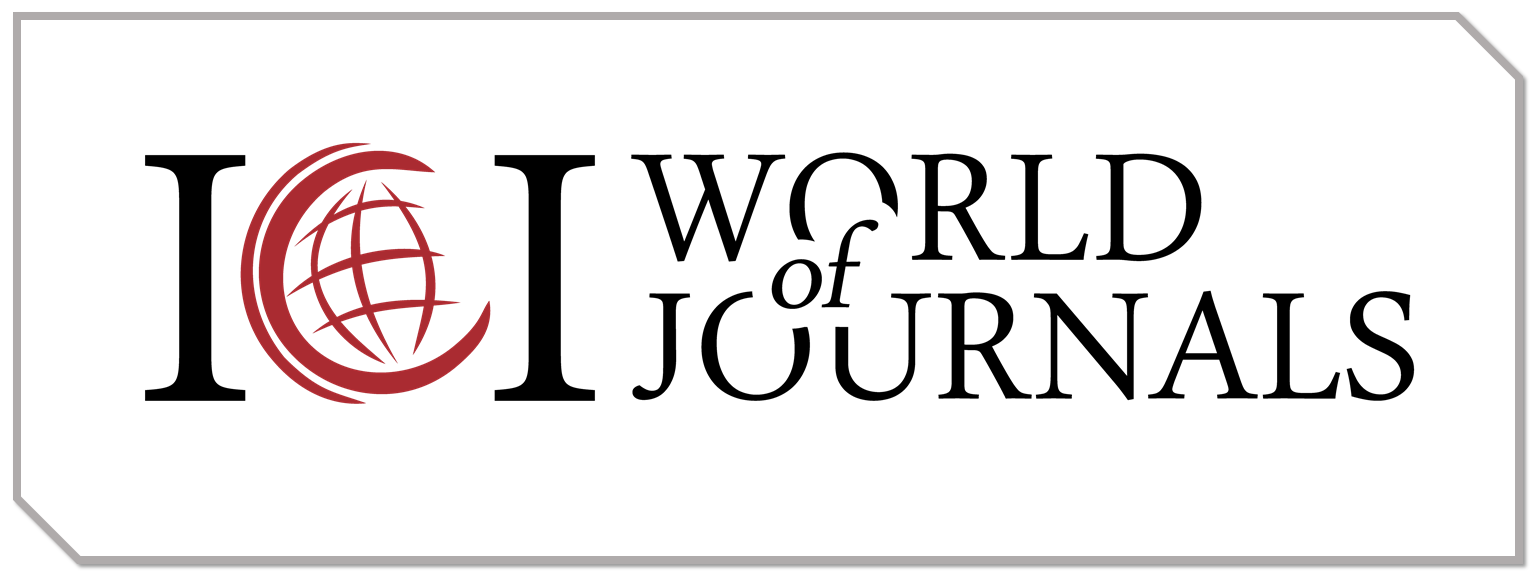PENGARUH KEPEMIMPINAN ETIS TERHADAP KOMITMEN ORGANISASIONAL, KINERJA KARYAWAN, DAN KETERLIBATAN KARYAWAN PADA INDUSTRI PERBANKAN
DOI:
https://doi.org/10.55606/optimal.v2i4.706Keywords:
Kepemimpinan Etis, Komitmen Organisasional, Keterlibatan Karyawan, Kinerja KarayawanAbstract
Terciptanya kinerja karyawan yang baik merupakan akibat dari adanya gaya kepemimpinan yang etis dari seorang pemimpin. Kepemimpinan etis memberikan cerminan positif pada karyawan lain yang tentunya menjadikan karyawan memiliki komitmen tersendiri pada perusahaan yang secara langsung dan tidak langsung mempengaruhi kinerja karyawan. Penelitian ini bertujuan untuk mengetahui pengaruh kepemimpinan etis, terhadap kinerja karyawan dan keterlibatkan karyawan melalui komitmen organisasi. Metode Penelitian ini menggunakan metode survey secara online untuk pengumpulan data responden dengan penyebaran kuesioner secara online pada karyawan yang bekerja di industry perbankan. Sampel pada penelitian ini berjumlah 120 responden dengan metode SEM dan dilakukan pretest pada 30 responden. Hasil pada penelitian ini membuktikan bahwa Peranan pemimpin sangat menonjol karena pemimpin menjadi cerminan bawahannya dalam bekerja sehingga menentukan komitmen setiap karyawan dalam berorganisasi dan impactnya terasa pada keterlibatan dan kinerja karyawan dalam mencapai tujuan organisasi.
References
Addai, P., Avor, J., Ofori, I. N., & Tweneboah, D. N. (2019). Ethical leadership and productive work attitudes among micro financial institutions in Ghana: Moderating role of organizational climate. Management Research Review, 42(9), 1049–1061. https://doi.org/10.1108/MRR-06-2018-0235
Adi, A. N., & Fithriana, N. (2020). How the workplace spirituality influences work engagement through organizational commitment: Evidence from banking industry. Management Science Letters, 10(14), 3375–3386. https://doi.org/10.5267/j.msl.2020.5.041
Ahmad, H., Ahmad, K., & Ali Shah, I. (2010). Relationship between Job Satisfaction, Job Performance Attitude towards Work and Organizational Commitment. European Journal of Social Sciences, 18(2), 257–267.
Aiyub, Yusuf, E., & Raja. (2021). The Effect of Employee Engagement on Employee Performance with Organizational Commitment as Intervening Variable and Percieved Organization Support as a Moderating Variable at The Regional Secretariat of Bireuen District. 10(September), 1–15.
Akram, A., Kamran, M., Iqbal, M. S., Habibah, U., & Atif Ishaq, M. (2018). The impact of supervisory justice and perceived Supervisor support on organizational citizenship behavior and commitment to supervisor: the mediating role of trust. Cogent Business and Management, 5(1), 1–17. https://doi.org/10.1080/23311975.2018.1493902
Alam, I., Kartar Singh, J. S., & Islam, M. U. (2021). Does supportive supervisor complements the effect of ethical leadership on employee engagement? Cogent Business and Management, 8(1). https://doi.org/10.1080/23311975.2021.1978371
Albdour, A. A., & Altarawneh, I. I. (2014). Employee engagement and organizational commitment: Evidence from Jordan. International Journal of Business, 19(2), 192–212.
Ali, S. C., & Syah, T. Y. R. (2019). Organizational Culture and Motivation over Mediated Performance by Organizational Commitment. Journal of Multidisciplinary Academic, 3(4), 85–90.
Andrew, O. C., & Sofian, S. (2012). Individual Factors and Work Outcomes of Employee Engagement. Procedia - Social and Behavioral Sciences, 40, 498–508. https://doi.org/10.1016/j.sbspro.2012.03.222
Anindita, R., & Emilia Seda, A. (2018). How employee engagement mediates the influence of individual factors toward organizational commitment. Problems and Perspectives in Management, 16(1), 276–283. https://doi.org/10.21511/ppm.16(1).2018.27
Ashfaq, F., Abid, G., & Ilyas, S. (2021). Impact of ethical leadership on employee engagement: Role of self-efficacy and organizational commitment. European Journal of Investigation in Health, Psychology and Education, 11(3), 962–974. https://doi.org/10.3390/ejihpe11030071
Bailey Anthony. (2016). The roles of employee job satisfaction and organizational commitment in the internal marketing-employee bank identification relationship. The Eletronic Library, 34(1), 1–5.
Bakker, A. B. (2011). An evidence-based model of work engagement. Current Directions in Psychological Science, 20(4), 265–269. https://doi.org/10.1177/0963721411414534
Bavik, Y. L., Tang, P. M., Shao, R., & Lam, L. W. (2018). Ethical leadership and employee knowledge sharing: Exploring dual-mediation paths. Leadership Quarterly, 29(2), 322–332. https://doi.org/10.1016/j.leaqua.2017.05.006
Bedi, A., Alpaslan, C. M., & Green, S. (2016). A Meta-analytic Review of Ethical Leadership Outcomes and Moderators. Journal of Business Ethics, 139(3), 517–536. https://doi.org/10.1007/s10551-015-2625-1
Brown, M. E., & Mitchell, M. S. (2010). Ethical and Unethical Leadership: Exploring New Avenues for Future Research. Business Ethics Quarterly, 20(4), 583–616. https://doi.org/10.5840/beq201020439
Chiang, F. T., & Birtch, T. A. (2007). Examining the perceived causes of successful employee performance: An East-West comparison. International Journal of Human Resource Management, 18(2), 232–248. https://doi.org/10.1080/09585190601102406
Chunghtai, A., & Zafar, S. (2006). Antecedents and consequences of organizational commitment. Military Psychology, 15(3), 225–236. https://doi.org/10.1207/S15327876MP1503_05
Dall’Ora, C., Ball, J., Recio-Saucedo, A., & Griffiths, P. (2016). Characteristics of shift work and their impact on employee performance and wellbeing: A literature review. International Journal of Nursing Studies, 57, 12–27. https://doi.org/10.1016/j.ijnurstu.2016.01.007
Daugherty Biddison, E. L., Paine, L., Murakami, P., Herzke, C., & Weaver, S. J. (2016). Associations between safety culture and employee engagement over time: A retrospective analysis. BMJ Quality and Safety, 25(1), 31–37. https://doi.org/10.1136/bmjqs-2014-003910
DEDEOĞLU, B. B., İNANIR, A., & ÇELİK, S. (2015). Relationship Between Ethical Leadership, Organizational Commitment and Job Satisfaction at Hotel Organizations. Ege Akademik Bakis (Ege Academic Review), 15(1), 53–53. https://doi.org/10.21121/eab.2015117999
Den Hartog, D. N., & de Hoogh, A. H. B. (2009). Empowering behaviour and leader fairness and integrity: Studying perceptions of ethical leader behaviour from a levels-of-analysis perspective. European Journal of Work and Organizational Psychology, 18(2), 199–230. https://doi.org/10.1080/13594320802362688
Engelbrecht S Amos, Heine Gardielle, M. B. (2017). Integrity, Leadership of Ethics, Trust and Work Engagement. Leadership & Organization Development Journal, 38(3), 1–32.
Fernandez, S. (2008). Examining the Effects of Leadership Behavior on Employee Perceptions of Performance and Job Satisfaction. Public Performance & Management Review, 32(2), 175–205. https://doi.org/10.2753/pmr1530-9576320201
Hair, Anderson, Tatham. (2008). Multivariate Data Analysis Fifth Edition (5th ed.).
Hair Jr., J. F., Matthews, L. M., Matthews, R. L., & Sarstedt, M. (2017). PLS-SEM or CB-SEM: updated guidelines on which method to use. International Journal of Multivariate Data Analysis, 1(2), 107. https://doi.org/10.1504/ijmda.2017.10008574
Hanaysha, J. (2016). Testing the Effects of Employee Engagement, Work Environment, and Organizational Learning on Organizational Commitment. Procedia - Social and Behavioral Sciences, 229, 289–297. https://doi.org/10.1016/j.sbspro.2016.07.139
Harter, J. K., Schmidt, F. L., & Hayes, T. L. (2002). Business-unit-level relationship between employee satisfaction, employee engagement, and business outcomes: A meta-analysis. Journal of Applied Psychology, 87(2), 268–279. https://doi.org/10.1037/0021-9010.87.2.268
Hartman, L. P., & Hartman, L. P. (2000). Management. California Management Review, 42(4), 128–142. https://journals.sagepub.com/doi/pdf/10.2307/41166057
Imron, H., Indradewa, R., & Syah, T. Y. R. (2020). Compensation Effects and Organizational Climate on Employees’ Performance by Organizational Commitment. Journal of Multidisciplinary Academic, 4(5), 300–307.
Irawati, R., & Carollina, D. A. (2017). Analisis Pengaruh Beban Kerja Terhadap Kinerja Karyawan Operator Pada Pt Giken Precision Indonesia. Inovbiz: Jurnal Inovasi Bisnis, 5(1), 51. https://doi.org/10.35314/inovbiz.v5i1.171
Jr. Hair, J. F., Black, W. C., Babin, B. J., & Anderson, R. E. (2014). Pearson New International Edition. British Library Cataloguing-in-Publication Data, 201–225.
Kumari, N., & Singh, D. (2018). Impact of organizational culture on employee performance. Prabandhan: Indian Journal of Management, 11(6), 53–63. https://doi.org/10.17010/pijom/2018/v11i6/128442
Lambert, E. G., Keena, L. D., Leone, M., May, D., & Haynes, S. H. (2020). The effects of distributive and procedural justice on job satisfaction and organizational commitment ofcorrectional staff. Social Science Journal, 57(4), 405–416. https://doi.org/10.1016/j.soscij.2019.02.002
Lin, W. Q., Yuan, L. X., Kuang, S. Y., Zhang, X. X., Lu, C. J., Lin, T. T., Lin, wei Y., Cen, H. H., Zhou, Y., & Wang, P. X. (2020). Work engagement as a mediator between organizational commitment and job satisfaction among community health-care workers in China: a cross-sectional study. Psychology, Health and Medicine, 25(6), 666–674. https://doi.org/10.1080/13548506.2019.1634821
Luu, T. T., Rowley, C., & Vo, T. T. (2019). Addressing employee diversity to foster their work engagement. Journal of Business Research, 95(August), 303–315. https://doi.org/10.1016/j.jbusres.2018.08.017
Mahsud, R., Prussia, G., & Yukl, G. (2010). Leader empathy, ethical leadership, and relationsoriented behaviors as antecedents of leadermember exchange quality. Journal of Managerial Psychology, 25(6), 561–577. https://doi.org/10.1108/02683941011056932
Markos, S., & Sridevi, S. (2010). Assessing the effect of organizational cultural values and employees engagement on performance excellence. International Journal of Management, 11(4), 108–126. https://doi.org/10.34218/IJM.11.4.2020.013
Na-Nan, K., Kanthong, S., & Joungtrakul, J. (2021). An empirical study on the model of self-efficacy and organizational citizenship behavior transmitted through employee engagement, organizational commitment and job satisfaction in the thai automobile parts manufacturing industry. Journal of Open Innovation: Technology, Market, and Complexity, 7(3). https://doi.org/10.3390/joitmc7030170
Nabawi, R. (2019). Pengaruh Lingkungan Kerja, Kepuasan Kerja dan Beban Kerja Terhadap Kinerja Pegawai. Maneggio: Jurnal Ilmiah Magister Manajemen, 2(2), 170–183. https://doi.org/10.30596/maneggio.v2i2.3667
Neves, P., & Story, J. (2015). Ethical Leadership and Reputation: Combined Indirect Effects on Organizational Deviance. Journal of Business Ethics, 127(1), 165–176. https://doi.org/10.1007/s10551-013-1997-3
Pradhan, R. K., & Jena, L. K. (2017). Employee Performance at Workplace: Conceptual Model and Empirical Validation. Business Perspectives and Research, 5(1), 69–85. https://doi.org/10.1177/2278533716671630
Qin, Q., Wen, B., Ling, Q., Zhou, S., Tong, M., Qin, Q., Wen, B., Ling, Q., Zhou, S., Tong, M., Management, C. H., Wang, C., Cheng, J., Chang, S., Kuo, J., Cheung, Y., Systems, D., & Xu, Y. (2014). Article information : International Journal of Contemporary Hospitality Management.
Riaz, A., & Hussain Haider, M. (2010). Role of transformational and transactional leadership on job satisfaction and career satisfaction. Business and Economic Horizons, 1, 29–38. https://doi.org/10.15208/beh.2010.05
Riggio, R. E., Zhu, W., Reina, C., & Maroosis, J. A. (2010). Virtue-based measurement of ethical leadership: The leadership virtues questionnaire. Consulting Psychology Journal, 62(4), 235–250. https://doi.org/10.1037/a0022286
Rupp, D. E., Shao, R., Thornton, M. A., & Skarlicki, D. P. (2013). Applicants’ and employees’ reactions to corporate social responsibility: The moderating effects of first-party justice perceptions and moral identity. Personnel Psychology, 66(4), 895–933. https://doi.org/10.1111/peps.12030
Sabir, M. S., Iqbal, J. J., Rehman, K. U., Shah, K. A., & Yameen, M. (2012). Impact Of Corporate Ethical Values On Ethical leadership And Employee Performance. International Journal of Business and Social Science, 3(2), 163–171. https://pdfs.semanticscholar.org/bb42/85bb889c22beda0cd1330a79ab7efd08b38b.pdf
Saks, A. M. (2006). Antecedents and consequences of employee engagement. Journal of Managerial Psychology, 21(7), 600–619. https://doi.org/10.1108/02683940610690169
Sarwar, H., Ishaq, M. I., Amin, A., & Ahmed, R. (2020). Ethical leadership, work engagement, employees’ well-being, and performance: a cross-cultural comparison. Journal of Sustainable Tourism, 28(12), 2008–2026. https://doi.org/10.1080/09669582.2020.1788039
Shuck;, & Wollard. (2010). Human Resource Development Review. https://doi.org/10.1177/1534484309353560
Stouten, J., Van Dijke, M., & De Cremer, D. (2012). Ethical leadership: An overview and future perspectives. Journal of Personnel Psychology, 11(1), 1–6. https://doi.org/10.1027/1866-5888/a000059
Takeuchi, R., Chen, Z., & Cheung, S. Y. (2012). Applying uncertainty management theory to employee voice behavior: An integrative investigation. Personnel Psychology, 65(2), 283–323. https://doi.org/10.1111/j.1744-6570.2012.01247.x
Tampubolon, R. Y., & Abadi, F. (2022). Pengaruh Budaya Kaizen, Pelatihan Kerja, dan Kompetensi terhadap Kinerja Karyawan pada PT Rimba Kencana Bumi Nusantara. Jurnal Bisnis Dan Komunikasi, 9(1), 23–31.
Thamrin, H. M. (2012). The Influence of Transformational Leadership andOrganizational Commitment on Job Satisfaction andEmployee Performance. International Journal of Innovation, Management and Technology, 3(5). https://doi.org/10.7763/ijimt.2012.v3.299
Thomas, C. H. (2007). A new measurement scale for employee engagement: Scale development, pilot test, and replication. Academy of Management 2007 Annual Meeting: Doing Well by Doing Good, AOM 2007. https://doi.org/10.5465/ambpp.2007.26501848
Tielung, J., Karyawan, P., Karyawan, P., Dan, M., Organisasi, K., Karyawan, K., Pt, P., Persero, P. L. N., Vii, W., Ekonomi, F., & Manajemen, J. (2013). No Title. 1(4), 1799–1808.
Turner, D. P. (2020). Sampling Methods in Research Design. Headache, 60(1), 8–12. https://doi.org/10.1111/head.13707
Walumbwa, F. O., Mayer, D. M., Wang, P., Wang, H., Workman, K., & Christensen, A. L. (2011). Linking ethical leadership to employee performance: The roles of leader-member exchange, self-efficacy, and organizational identification. Organizational Behavior and Human Decision Processes, 115(2), 204–213. https://doi.org/10.1016/j.obhdp.2010.11.002
Walumbwa, F. O., Morrison, E. W., & Christensen, A. L. (2012). Ethical leadership and group in-role performance: The mediating roles of group conscientiousness and group voice. Leadership Quarterly, 23(5), 953–964. https://doi.org/10.1016/j.leaqua.2012.06.004
Warongan, J., Sendow, G., & Ogi, I. (2014). 3 1.2.3. 2(4), 331–342.
Weng, Q., McElroy, J. C., Morrow, P. C., & Liu, R. (2010). The relationship between career growth and organizational commitment. Journal of Vocational Behavior, 77(3), 391–400. https://doi.org/10.1016/j.jvb.2010.05.003
Wu, G., Hu, Z., & Zheng, J. (2019). Role stress, job burnout, and job performance in construction project managers: The moderating role of career calling. International Journal of Environmental Research and Public Health, 16(13). https://doi.org/10.3390/ijerph16132394
Yukhymenko-lescroart, M. A., Brown, M. E., & Paskus, T. S. (2015). Supplemental Material for The Relationship Between Ethical and Abusive Coaching Behaviors and Student-Athlete Well-Being. Sport, Exercise, and Performance Psychology, 4(1), 36–49. https://doi.org/10.1037/spy0000023.supp














